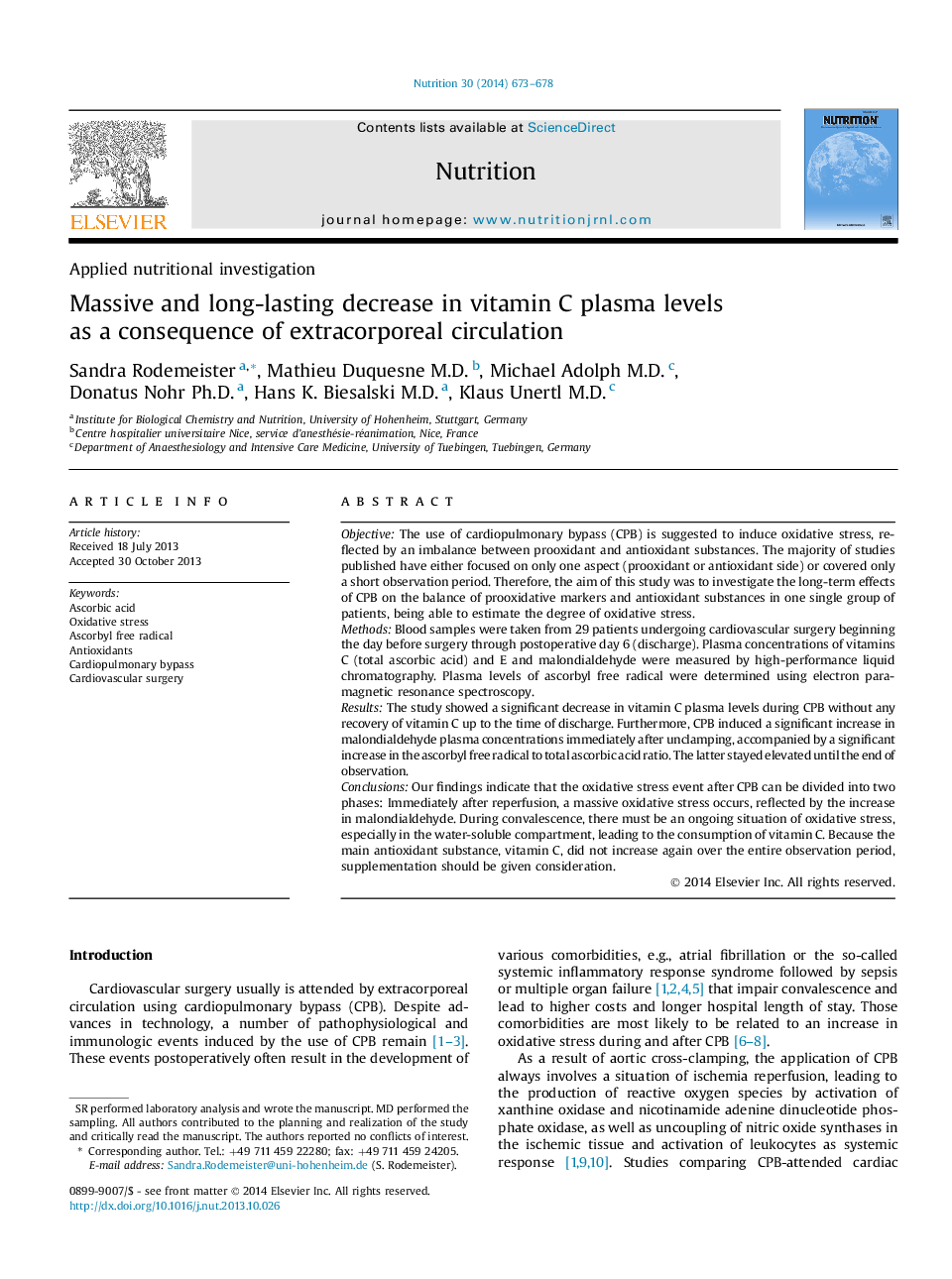| کد مقاله | کد نشریه | سال انتشار | مقاله انگلیسی | نسخه تمام متن |
|---|---|---|---|---|
| 6089775 | 1208554 | 2014 | 6 صفحه PDF | دانلود رایگان |

ObjectiveThe use of cardiopulmonary bypass (CPB) is suggested to induce oxidative stress, reflected by an imbalance between prooxidant and antioxidant substances. The majority of studies published have either focused on only one aspect (prooxidant or antioxidant side) or covered only a short observation period. Therefore, the aim of this study was to investigate the long-term effects of CPB on the balance of prooxidative markers and antioxidant substances in one single group of patients, being able to estimate the degree of oxidative stress.MethodsBlood samples were taken from 29 patients undergoing cardiovascular surgery beginning the day before surgery through postoperative day 6 (discharge). Plasma concentrations of vitamins C (total ascorbic acid) and E and malondialdehyde were measured by high-performance liquid chromatography. Plasma levels of ascorbyl free radical were determined using electron paramagnetic resonance spectroscopy.ResultsThe study showed a significant decrease in vitamin C plasma levels during CPB without any recovery of vitamin C up to the time of discharge. Furthermore, CPB induced a significant increase in malondialdehyde plasma concentrations immediately after unclamping, accompanied by a significant increase in the ascorbyl free radical to total ascorbic acid ratio. The latter stayed elevated until the end of observation.ConclusionsOur findings indicate that the oxidative stress event after CPB can be divided into two phases: Immediately after reperfusion, a massive oxidative stress occurs, reflected by the increase in malondialdehyde. During convalescence, there must be an ongoing situation of oxidative stress, especially in the water-soluble compartment, leading to the consumption of vitamin C. Because the main antioxidant substance, vitamin C, did not increase again over the entire observation period, supplementation should be given consideration.
Journal: Nutrition - Volume 30, Issue 6, June 2014, Pages 673-678